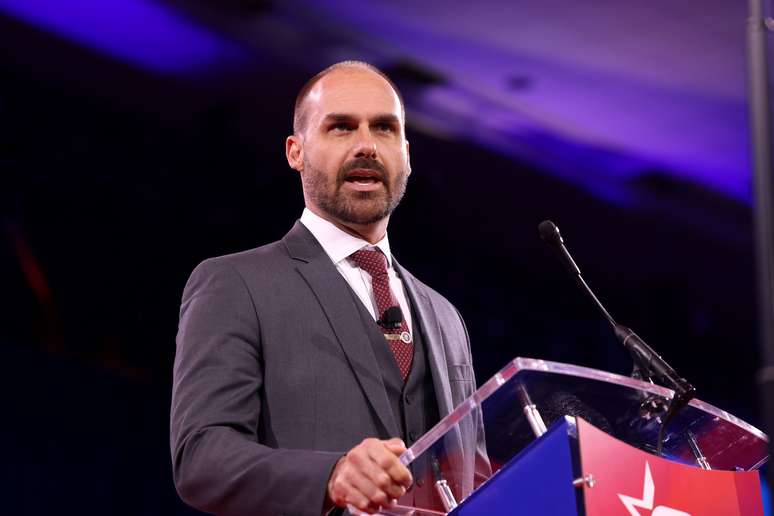Leading an investment group comprised of women of color, executive Luana Ozemela says she, without losing empathy, evaluates which options are most likely to be profitable
In the context of the ESG agenda (English acronym for Environment, Social and Governance)what are the black investors considered as criteria to financially support a company? The topic is on the agenda discussed by the executive and social impact investor Luana Ozemela in BlackWin (short for Black Women Investment Network), a two-year-old platform that has brought together women leaders of color with decision-making power in investments and which seeks progress in the causes remembered this July 25, International Day of Black Women of Latin America and the Caribbean.
The experiences of the group founded by her and her fellow manager Jéssica Silva (member of the ESG committee of Fleury Group) offered insights into what drove black professionals in choosing which companies to invest in, especially when it came to investing in startups. The first of these criteria, according to Ozemela, was to prioritize not only initiatives that have a social impact, but also whether they are sustainable and have the potential for financial returns.
“Speaking in light of the experience of BlackWin, which perhaps integrates a little the experience of all these women, the first thing (to be considered) is the validation of a monetizable business model. We are much more surgical today, as black women investors, (consider) that we want impact, but without overloading the narrative of impact. We need to have balance in our decisions. We remain empathetic, but we see which options are most likely to be profitable.”
Other points are also evaluated, such as the company’s growth potential and the flexibility of its leaders. “We are increasingly concerned as investors (with the fact that) that we need people who not only know how to build great products, but who have a CEO mindset and can mobilize professionals to build a successful company. We also look for founders who are open to feedback, even if they don’t need to have a board seat. axis (advise) of the company – to be able to address the business model when it isn’t working.”
Little diversity
The insights are part of Ozemela’s quest to help guide BlackWin members in making better investment decisions and, thus, expand the movement of black women investors and founders in the financial sector. The initiative is tied to her own journey. Over two decades of career in impact investing that began in Inter-American Development Bank (IDB)In the US, the executive branch has experienced the discomfort of not being able to find other black women in the financial market ecosystem.
“At IDB, I was the only black Brazilian woman as an economist leading social investment projects. So my career started out very lonely, very alone,” she recalls. “The bank served a region, Latin America, where at the time 200 million people were considered black, and to have a single black Brazilian woman involved in this was very little.”
Over time, Ozemela has expanded her work to prioritize a racial focus in addition to a social focus in her investment work, considering the potential market of the Black population. “The main learning from this period has been: you need a Black woman’s perspective to be able to bring these issues forward. Having someone who identifies and has a keen eye on the challenges of the Black population is extremely important to see their potential market.”
“When you come from this community, you sit down with the client and you have a much greater synergy to identify the potential. So the lack of diversity in the investment industry is extremely problematic because you are missing out on a huge opportunity to make money. Not just to make money as an investor, but to have economic viability as an impact investor,” the executive adds.
Market presence
Currently, in addition to BlackWin, Ozemela combines his boardroom experience with his role as Vice President of Impact and Sustainability at iFood and managing the Qatar-based impact investment consultancy Dima Consult. As part of these efforts, she has sought to advance the goal of increasing diversity in the financial sector, as she still sees the presence of black women in the ecosystem as insignificant. BlackWin, for example, is composed of 37 members.
“There are very few black women working in investment firms today, and very few women on, for example, the investment committee, which is the most influential body in this space. There is still a huge underrepresentation. We cannot completely close it down to the number of black women in these colleges.”
For Ozemela, expanding the presence of black women investors in the financial ecosystem requires “courage and patience” on the part of the market, without imposing them to act immediately with previous experience that, in general, takes time to build. The potential of these professionals, according to the executive, is great and is also manifested in small-scale support decision-making processes. In angel investments, for example, there is a “critical mass” of black women investors with the purchasing power necessary to make contributions of up to R$ 50,000 in startups, she says.
“The market has to have courage and patience. In the investment industry, where the vast majority of people already had someone who was patient with them, to bring a woman of color into the world and not have that same level of patience, is doomed to failure. To be successful, they have to have the courage to have a woman of color on the investment committee and provide that support network. With those two things, the financial market can benefit from the potential and talent of women of color in the industry.
Source: Terra
Rose James is a Gossipify movie and series reviewer known for her in-depth analysis and unique perspective on the latest releases. With a background in film studies, she provides engaging and informative reviews, and keeps readers up to date with industry trends and emerging talents.



![Everything for the light: Victoria’s lost brother is re -emerging … which is waiting for you for a week from July 21, 2025 to 25 to 25 [SPOILERS] Everything for the light: Victoria’s lost brother is re -emerging … which is waiting for you for a week from July 21, 2025 to 25 to 25 [SPOILERS]](https://fr.web.img4.acsta.net/img/47/f5/47f509b19ed6436b5de2bbbeef730efe.png)


